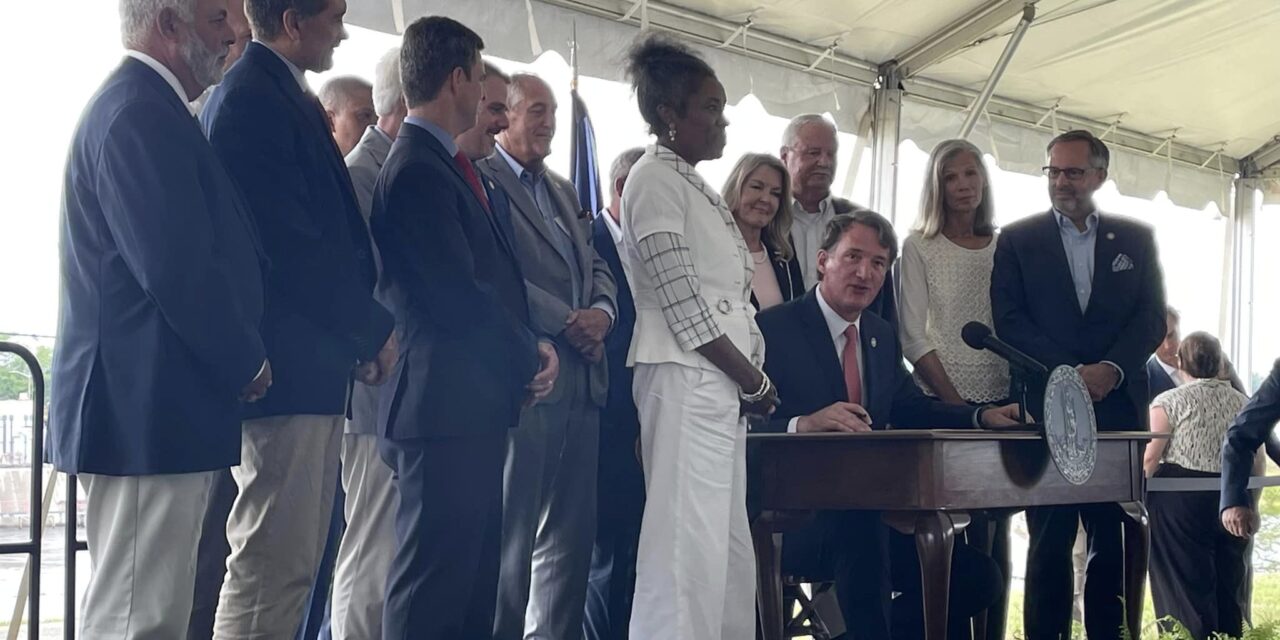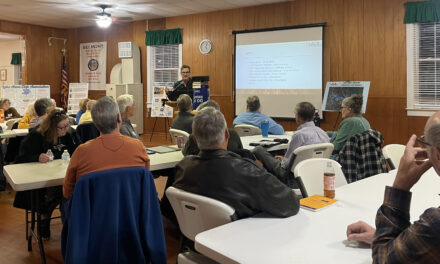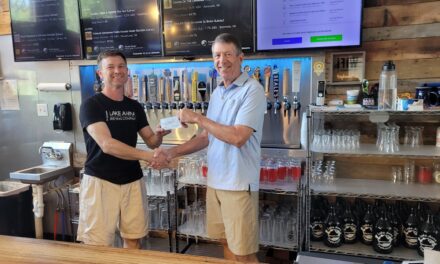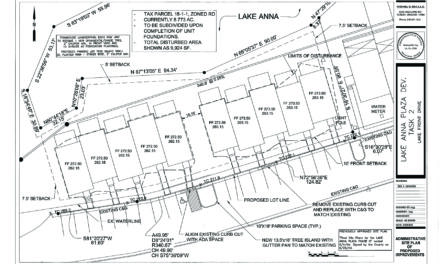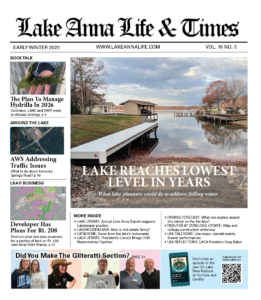Dominion Energy’s North Anna Power Station was the site of ceremonial but significant bill signing July 10 by Virginia Governor Glen Youngkin. With the Governor’s signature on SB 454, Dominion Energy Virginia announced it has issued a Request for Proposals (RFP) from leading Small Modular Reactor (SMR) nuclear technology companies to evaluate the feasibility of developing an SMR at the company’s North Anna Power Station in Louisa County.
At the event Dominion Energy President Bob Blue told a crowd of utility employees, public officials and press that Virginia has relied on nuclear power for four decades.
He recalled that the first North Anna reactor went online in 1978 and that today, about one-third of Virginia’s electricity comes from the North Anna reactors and from those at Dominion’s Surry Power Station in Surry County.
“As Virginia’s need for reliable and clean power grows, SMRs could play an equally pivotal role in our energy future,” Blue said.
He noted that while the RFP is not a commitment to build a Small Modular Reactor (SMR) at North Anna, it is an important first step in evaluating the technology and the North Anna site to support Dominion Energy customers’ future energy needs consistent with the company’s most recent Integrated Resource Plan.
State leaders at the event emphasized the bipartisan nature of the legislation that essentially allows Dominion Energy Virginia to preform preliminary development work on SMRs and underscored the benefits that SMR development represents, including the lower upfront capital cost and scalability.
Virginia Senator Dave Marsden (D-Fairfax) was also present to sign the bill he co-sponsored. Language in the bill allows Dominion to recover the costs of early development work from customers if the utility receives regulatory approval for the work. Those costs would be capped at $1.40 per month for a residential customer using 1,000 kilowatt hours of electricity in a month.
With speakers enthusiastic about the early development work, they noted if built, SMRs will bring more reliable and clean power to the electric grid.
“Virginia stands at the threshold of this very exciting and transformative era,” said Lieutenant Governor Winsome Sears. “Our energy needs, ladies and gentlemen, are growing and so too are our opportunities.”
During his remarks, Gov. Youngkin said SMRs are part of his vision for an “all of the above” energy future in Virginia, which also includes building out wind, solar, battery storage and natural gas resources.
“It’s carbon capture, it’s hydrogen, it’s — of course — small modular reactors. It is all of the building blocks that Virginia and America will use to drive into the future,” Youngkin said.
Sen. Marsden noted at the event that he sees the legislation as an important step in meeting Virginia Clean Economy Act benchmarks. That state law requires Dominion to retire all carbon-emitting power stations by 2045, unless they’re needed to maintain system reliability.
“This bill goes a long way toward giving us an additional carbon-free tool to realize that goal,” Marsden said.
SMRs harness nuclear fission to generate heat and produce energy like their full-size nuclear unit counterparts and are widely considered the next generation of carbon-free nuclear power in the United States.
“Though the parts are factory-made and modular, SMRs represent reliability like traditional nuclear power,” said Louisa County Economic Development Director Andy Wade. “Their scalability and small footprint will allow us to effectively meet the growing projected local power demands.”
“While there is no commitment to build an SMR at North Anna as of today, we do know siting SMRs on an existing power station property allows for interconnection to the grid and access to a trained workforce,” said Louisa County Board of Supervisors Chairman Duane Adams. “Hopefully an SMR will soon call Louisa home.”
Lake Anna Life & Times first reported on the possibility of SMRs at North Anna in 2022 when it was learned the federal government was offering research grant funding to encourage corporations to develop such technology.

